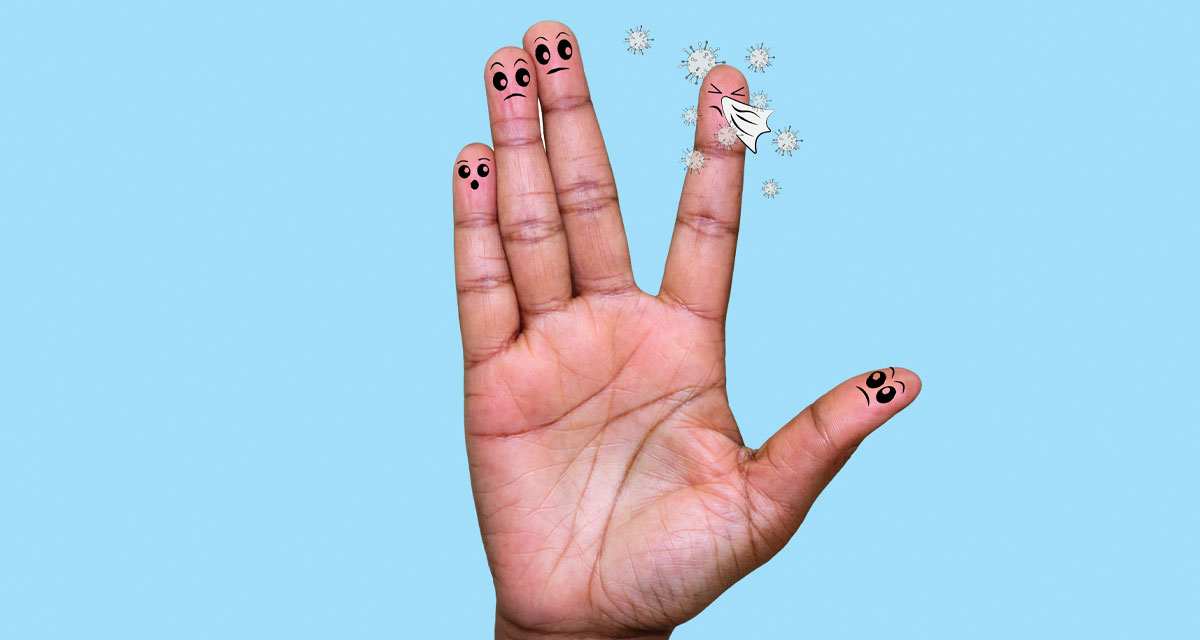It’s hard for us to imagine it now, but there was a long stretch of time in history when people had no idea that germs existed. Instead, they thought disease was brought on by foul odors, evil spirits or even divine retribution for a life of sin! Imagine. All this changed when the germ theory was proven and became widely accepted in Europe and North America between about 1850 and 1920. This brought about a great revolution in the field of medicine.
Hand washing has become increasingly important ever since it was discovered that harmful bacteria are transported on the hands. The entire world has had the point driven home in the past few years while we lived through the COVID pandemic.
The science behind hand washing:
Researchers estimate that, on average, humans touch their faces around 20 times an hour with about 44 percent of these touches involving eyes, mouths and noses which are some of the quickest entry points into the body’s interior. Breaking this chain of transmission can help stop the spread of disease. You can try to avoid sneezing or coughing into your hands and be more conscious of how much you are touching your face, but the most crucial step to help avoid illness is to keep your hands free from germs.
Hand hygiene…either washing hands with soap and water or using hand sanitizer is the most critical step in controlling infection, especially after being in contact with a sick person, before eating a meal or after using the bathroom. Proper hand hygiene can stop transmission of infection in its tracks.
According to the CDC, here are the steps you should follow:
- first, wet your hands, front and back, with clean, running water
- lather up with soap, paying special attention to the often-overlooked spaces between your fingers, under your nails and do not forget your wrists
- scrub for at least 20 seconds (some people like to sing a song to ensure they scrub for the right amount of time…pick your favorite song and get washing)
- rinse and dry from tips of fingers down to your wrists
If you do this technique properly, the combined action of lathering, scrubbing and rinsing will effectively remove the pathogens from your skin.
Hand sanitizers are also effective at cleaning and disinfecting hands. The only times when hand sanitizers are not appropriate are when hands are visibly soiled or if you or someone you are caring for has infectious diarrhea (like Norovirus)…in those cases, you need to wash with soap and water. Timing also matters with sanitizers. Once you squirt a dollop into your palm, you should rub it all over your hands, front and back, until they are completely dry. Do not shake them or wipe them off with a towel. These actions will take away the sanitizer’s effectiveness. The CDC recommends finding a product with at least 60 percent alcohol content, which is the minimum concentration found to be effective at killing germs.
How clean hands help you stay healthy:
- Good hand washing is the first line of defense against the spread of illnesses, including COVID-19, Influenza, infectious diarrhea, hepatitis A and the common cold (among many others).
- Washing hands prevents illnesses and spread of infections to others.
- Germs from unwashed hands can be transferred to other objects like handrails, tabletops or toys and then transferred to another person’s hands.
- Teaching people about hand washing helps them and their communities stay healthy.
- About 1.8 million children under the age of five die each year from diarrheal diseases and pneumonia, the top two killers of young children around the world. Proper hand washing can avoid these deaths.
- Hand washing with soap could protect about one out of every three young children who get sick with diarrhea and almost one out of five young children with respiratory infections like pneumonia.
- Hand washing education and access to soap in schools can help improve attendance.
How hand washing helps to battle the rise of antibiotic resistance:
Preventing sickness reduces the amount of antibiotics people use and the likelihood that antibiotic resistance will develop. Reducing infections by washing hands frequently helps prevent the overuse of antibiotics – the single most important factor leading to antibiotic resistance around the world. Handwashing can also prevent people from getting sick with germs that are already resistant to antibiotics and that can be difficult to treat.
So, do not underestimate the power of hand washing! The time you spend cleaning your hands could save you and your family a trip to the doctor’s office and also protect the people you come into contact with every day.



















